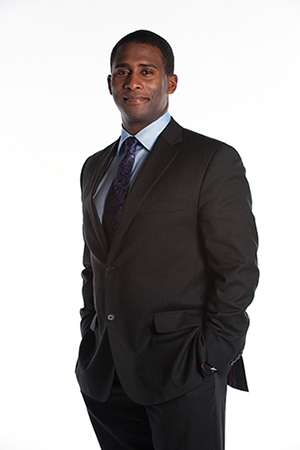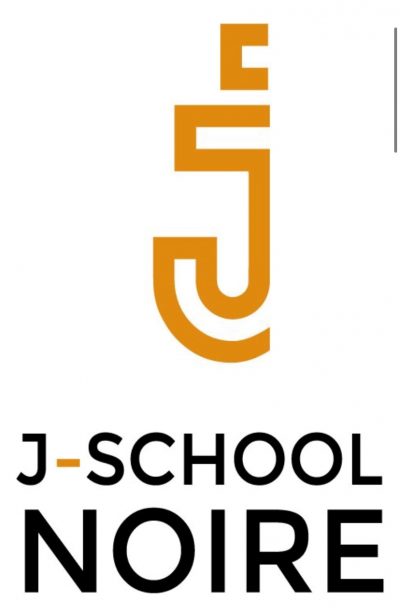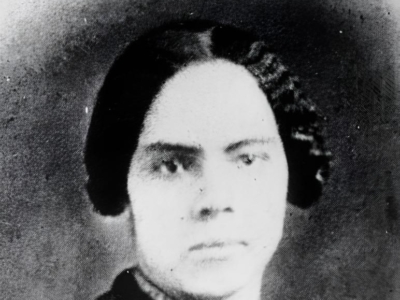By Jena Lynde-Smith
The second annual J-School Noire program to encourage Black youth to consider careers in media starts next week and adjunct professor Adrian Harewood is playing a big role.

Adrian Harewood
J-School Noire is an educational program that seeks to inspire and educate Black youth across Canada, using a virtual media training and mentorship to encourage them to pursue media careers. The program of two-day media skills workshops is rolling out in four cities across Canada during Black History Month and the Ottawa sessions are planned for Feb. 6-7. Participants are later partnered up with senior journalists for a year-long mentorship.
The project was launched by the Canadian Association of Black Journalists (CABJ) last year in Halifax when 12 people took part This year, the program has been expanded to include workshops in Toronto, Edmonton and Ottawa with upwards of 43 participants. Harewood is organizing the Ottawa event.
“We have to do whatever we can to make sure that young BIPOC kids know they have a place in this industry,” Harewood said. “The media should not just be the domain of a particular kind of person. It shouldn’t just be the domain of people who have means, or people who happen to have a familial connection to the industry.”
Harewood is the co-host of CBC News Ottawa and joined Carleton’s School of Journalism last year as an adjunct professor. In the fall term he designed and taught a brand new course, Journalism, Race & Diversity. This term he is teaching Journalism Now – and Next, a course about the changes in media and public response to those changes.
Harewood has been involved with the CABJ on and off for 20 years. He’s working with a handful of other senior journalists on this project, namely CBC’s David Thurton and Brian Daley, and Charelle Evelyn and Erica Iffil of The Hill Times. Each of them will be delivering sessions at the Ottawa workshops on Feb. 6-7. After that, they will also be acting as mentors for the program’s mentorship component.
Harewood said that programs like J-School Noire are imperative for today’s youth.
“I understand the power of media and understand what it can do for young people – enabling them to tell their stories from their perspective. That’s a very powerful instrument,” he said. “Kids are getting exposed to a tool that will allow them to better understand their world and explain their world.”
And he said it is important for these youth to know someone cares about them.
“It’s important for people to know that they are recognized and valued, and that people who they might not know are willing to invest time in them. That’s a very affirming thing,” he said.
Harewood said that J-School Noire is one means to tackle the issue of representation in the media industry.
“The media should not just be the domain of a particular kind of person. It shouldn’t just be the domain of people who have means, or people who happen to have a familial connection to the industry. All people, if they have that aspiration and desire, should be able to participate fully,” he said.
Harewood said there is an onus on media organizations to foster change.
“It’s important that institutions take the initiative and recognize their own responsibility to ensure that we are representing and reflecting the population,” he said.
“We need to make sure that all of these spaces in society are available to all of our citizens.”
Harewood said that it was an opportunity similar to J-School Noire that opened the doors for him and many others 26 years ago. That’s when Harewood and three others took the lead on Shades of Blackness, a project that invited members of the Black community to take part in a day of radio programming on CKCU. The program was produced solely by the Black community and went on to win a national award in 1994 from the National Campus Radio Association (NCRA).
Harewood said this experience had a profound impact on those who participated.
“A quarter century later, a number of us are full-fledged journalists, are involved in media, or are at least aware that these spaces are there,” he said. “In some ways, J-School Noire is a similar kind of thing. This generation will be introduced and will hopefully be able to use it in interesting ways.”
Harewood said he feels a strong responsibility to today’s youth.
“It’s incumbent upon us to use whatever power we have to make space.”
“To provide these kinds of opportunities so that the next generation will be able to tell their stories and make the critical interventions that are necessary in the discourse.”
Monday, February 1, 2021 in General, Journalism News
Share: Twitter, Facebook



